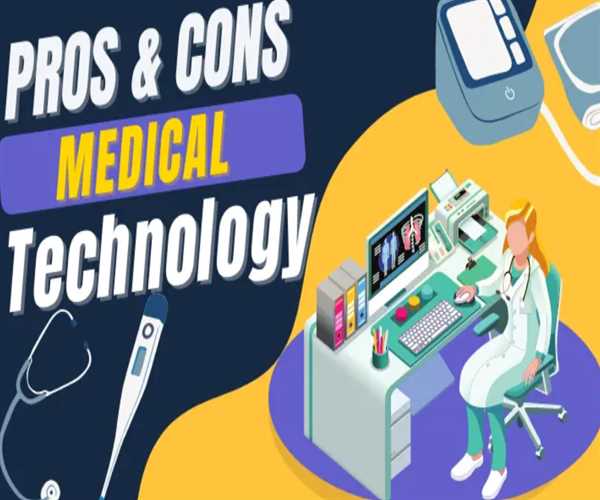New medical technology has revolutionized the way we diagnose, treat, and manage medical conditions. With advancements in medical technology, healthcare professionals can now provide more accurate diagnoses, efficient treatments, and access to medical information and resources that were previously unavailable. Despite the many advantages of new medical technology, there are some potential drawbacks that must also be considered.
- One of the primary benefits of new medical technology is that it can provide more accurate diagnoses. Advances in medical imaging and laboratory diagnostics have enabled healthcare professionals to detect and diagnose medical problems more rapidly. The use of technologies such as MRI scans, CT scans, and genetic testing can help physicians to identify and treat medical problems more quickly and accurately.
- In addition, new medical technology has enabled healthcare professionals to access an unprecedented amount of medical information, allowing them to make more informed decisions regarding diagnosis and treatment.
- Another advantage of new medical technology is that it can provide more efficient treatments. Thanks to recent advancements in technology, treatments can now be completed with greater speed and accuracy. For example, robotic surgery can be completed with precision and accuracy, often reducing the risk of complications and the duration of recovery time. In addition, some treatments, such as gene therapy, can be used to replace diseased or malfunctioning cells, effectively curing the underlying medical problem.

Despite the many advantages of new medical technology, there are some potential drawbacks that should also be taken into consideration.
- One of the primary drawbacks is the cost associated with using new medical technology. In some cases, medical technology can be quite expensive, especially when it comes to advanced treatments such as gene therapy or robotic surgery.
- Additionally, there is always the potential for medical technology to create unexpected issues, such as false positives or misdiagnosed. As a result, it is important for healthcare professionals to weigh the potential benefits and risks of using new medical technology before implementing it in their practice.
- Finally, new medical technology can also have an impact on the privacy of patients. With the increasing use of technology in healthcare, there is the potential for patient data to be accessed and used without the patient’s knowledge or consent. To protect patient privacy, healthcare professionals should ensure that they are only using secure, encrypted systems that protect patient data from unauthorized access.
In conclusion, new medical technology can be a valuable asset to the healthcare industry, providing more accurate diagnoses, efficient treatments, and access to medical information and resources. However, there are still some potential drawbacks that must be taken into consideration when deciding whether or not to use new medical technology. By weighing the potential pros and cons of new medical technology, healthcare professionals can make informed decisions regarding the use of medical technology in their practice.